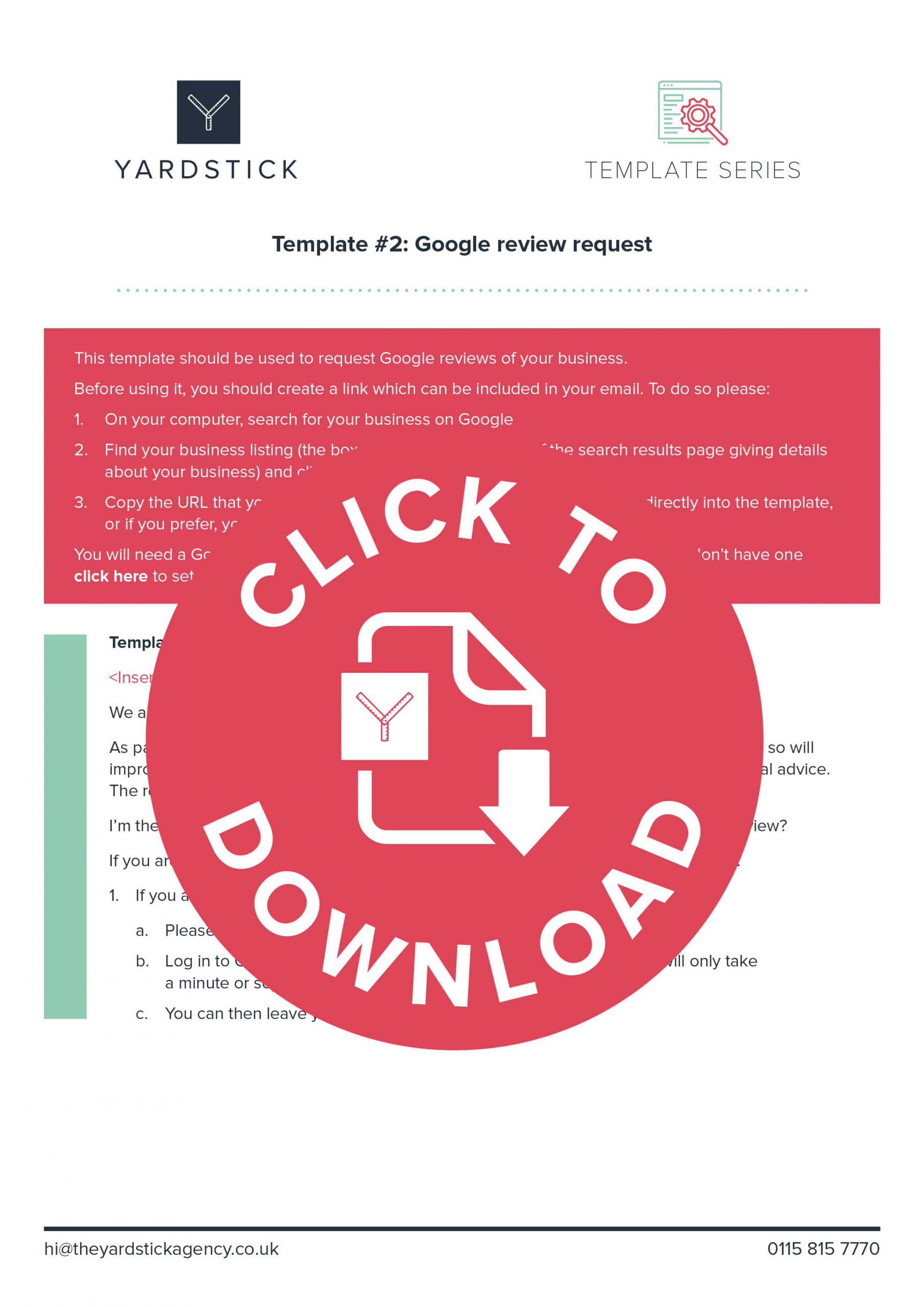The importance of collecting social proof (obviously, Google reviews; using the thoughts and words of others to prove the value you add) has been a common theme for us this year.
If you want to carve a niche as a ‘go to’ local adviser, we recommend collecting social proof (initially at least, we still love client videos) in 3 ways:
- VouchedFor
- Google reviews
- Direct requests for testimonials
You can read more about why this is the most effective combination here: Collecting client reviews: VouchedFor, Google or Facebook, which should you use?
In the meantime, it’s Google reviews we want to focus on this week.
Why are Google reviews so important?
There are several reasons:
1. As part of a referral and recommendation strategy
We know two things about referrals and recommendations; firstly, they make the best type of new enquiry. Secondly, many will research you and your business online before getting in touch. That means a Google search.
In many respects, the Google search results are now your homepage. What potential clients see when they search for your business will increase or decrease the likelihood of them getting in touch. If they can find your website easily and your Google My Business listing appears with positive reviews, they are more likely to continue their journey towards you. If you’re invisible online, or the reviews are negative, they may well look elsewhere.
2. They will help you rank more highly for local searches
Google reviews are an important factor in being easily found online by people searching for a local adviser or planner.
Why?
Google wants to deliver the most relevant and useful results for every search. It’s logical therefore that they will consider the reviews and ratings businesses receive when deciding where to rank them in the search results. There’s no doubt that the number and quality of reviews are a huge factor in local SEO (Search Engine Optimisation).
3. Your competition probably isn’t rated or reviewed
A relatively small proportion of planning firms take the collection of social proof seriously.
Even fewer have a meaningful number of Google reviews. Building a process to successfully collect Google reviews will put you a step ahead of your competition and peers. Especially when it comes to local search.
4. Getting ahead of the game
Less than perfect reviews aren’t always bad news; they show authenticity and give the opportunity to learn. However, a general lack of reviews mean that poor ratings stick out like a sore thumb.
In the unlikely event this is a problem for you in the future, building up positive reviews will help you get ahead of the game and show any issues were an isolated incident.
5. Ratings and reviews can be used elsewhere
While they will look great on our Google listing the ratings and reviews can be used elsewhere to really leverage their power.
They could be embedded into your website, included in your email footer, added into email newsletters and included in your printed marketing literature. There’s almost no limit to what you can do with them. Of course, you’ve got to collect them first, which leads us nicely on to…
Collecting Google reviews
We need to answer two questions here; when and how to ask for reviews.
When: If you are one of those with few, if any, Google reviews we recommend immediately asking a select number of clients to leave a review.
Then, we recommend asking new clients to leave a review at the end of the onboarding process and existing clients immediately following a review meeting.
Naturally, if you use VouchedFor you need to avoid ‘feedback fatigue’. We recommend changing this process to ask all new clients to leave a VouchedFor review at the end of the onboarding process. And then ask for a Google review following a subsequent review meeting.
How: We always recommend asking for reviews and testimonials via an email.
Even if a client verbally agrees to writing a review or providing a testimonial, this should still be followed up by email.
Why?
Several reasons.
Firstly, we all lead busy lives and a verbal request can soon be forgotten. In contrast, an email sits in the inbox until it’s replied to or deleted. Secondly, by asking in an email you can give the client some direction about what they should include in the testimonial. This helps increase response rate, the quality of reviews and avoid requests for you to write the testimonial / review on their behalf, which should be avoided at all costs. Finally, it’s a more efficient way of making the request.
Talking of efficiency…
A template to help you
We’ve previously created a template which advisers and planners can use to ask clients for testimonials. You can still download that by clicking here.
This has been extremely popular. However, requesting Google reviews is slightly different. So, we’ve created a new template specifically for that job.
You can download it by clicking here. As usual, it’s free and open to all, there’s no pesky form to complete and no need to give us your email address.
What are you waiting for? Make a list of clients you want to send it to; download the template, open your emails and send those requests.



